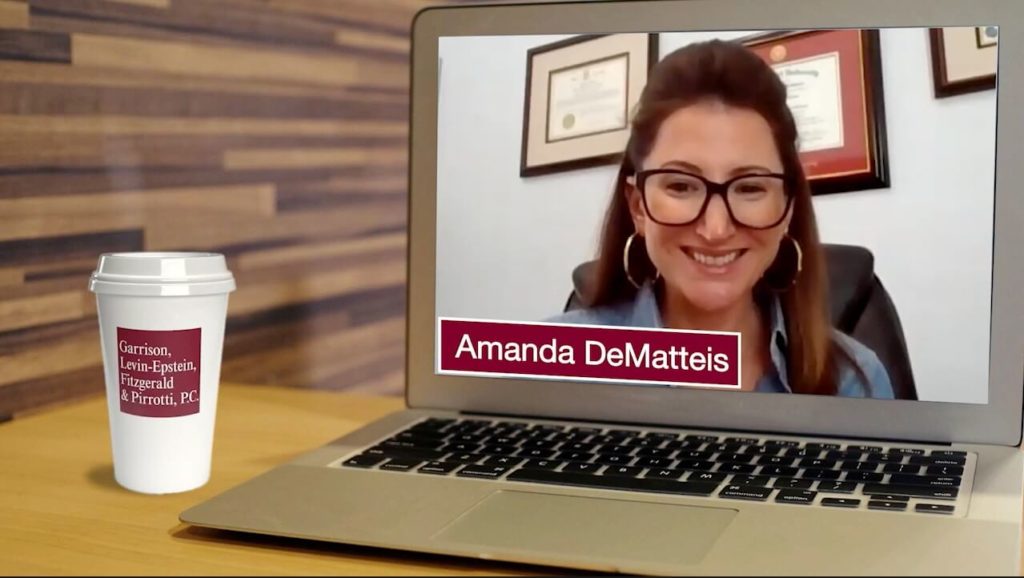Amanda DeMatteis: Hi, Josh!
Josh Goodbaum: Hi, Amanda! What are we going to talk about today?
DeMatteis: So, I have an interesting one, I think. I had a client come to me about three weeks ago and she was dealing with awful, pervasive sexual harassment at the hands of her boss for a number of months. She asked her boss to stop, just to no avail; it just continued and continued. She finally got to the point where she started recording their interactions together, and she ended up getting a recording of just this awful sexual harassment. Eventually, she came to us, and we were able to help her. But it raised a really interesting question: Should employees be recording interactions between co-workers and/or their boss if they’re dealing with sexual harassment, discrimination, retaliation? Is this a useful tool, and is this something we want Connecticut employees to be doing? What do you think?
Goodbaum: It’s a really good question. It’s a hard question, and like a lot of complicated legal questions, there isn’t a simple, straightforward answer. So, here are a few things I can say:
Number one, if you think you’re being subjected to sexual harassment, or discrimination, or retaliation, talk to an employment lawyer. Your first step should not be self-help. Your first step should be: Who is somebody who’s dealt with this before who I can reach out to? That could include us at Garrison, Levin-Epstein or other people. But reach out to a lawyer. But since you’re asking the question and since there are people who are going to resort to self-help, I will say it depends on the circumstances.
We know this much about the law: It is generally not illegal to record a conversation that you have in-person with another person who is also there in-person, at least in the State of Connecticut. It can be a legal problem to record conversations that occur over the wires, by which we mean the telephone and Zoom, like the platform you and I are on right now, or any other kind of electronic communication. So there’s a difference between in-person and electronic communications.
There’s also a question about what kind of work environment you work in and what are the policies of that workplace. So, imagine you work in a doctor’s office. Recording information that’s covered by HIPAA could be a real problem. You don’t want to get yourself into a situation where you’re recording something other than your interpersonal interactions where it covers patients’ private health information or bank wiring numbers or social security numbers or other kinds of really protected information, things that could get you in a lot of trouble and are just not advisable.
Then you want to think about, “What are my employer’s policies?” Is there a policy that prohibits recording of every kind? Those policies may or may not be enforceable, either as a matter of anti-discrimination law or as a matter of labor law. Many employees have rights under the National Labor Relations Act to engage in certain kinds of communications and to record certain kinds of communications. But in general, if you are recording a conversation where somebody is harassing you, and you’re being specific about the kinds of conversations you’re recording, and you’re doing it from an in-person interaction, you’re probably okay. Not all the time, not necessarily, but probably okay.
That said, I circle back to my first piece of advice, which is: Start by contacting an employment lawyer who represents employees and then the two of you can strategize. How might we gather information or evidence in order to support these claims, and is that something we need or not? Because it’s better not to be going at it alone. A lot of employees in a situation where they’re being subjected to grievous sexual harassment, where they’ve asked their boss to stop and the boss is not stopping, think, “I have to deal with this alone. There’s nobody in the world that can help me. Nobody’s going to understand.” Maybe they went to their family and their family didn’t really understand the situation. The family said, “You know, every workplace is kind of difficult, you should just deal with it.” That happens, but that’s not the answer when you’re dealing with a hostile work environment on the basis of your sex or your race or your disability. There are lawyers who practice in this area; we do at Garrison, but others do as well. So the first step is talk to somebody who has been through this before and knows how to help you.
DeMatteis: Really, really good advice and a tricky question, so we hope this was helpful. Also, remember when you reach out to any lawyer to get advice, those communications are confidential. So you don’t have to feel like your employer is going to find out, your co-workers are going to find out – it’s protected by the attorney-client privilege so you can get yourself really useful information that will help you navigate a situation that you aren’t dealing with regularly, but we are.
Thank you so much for watching. We’ll see you next time.

